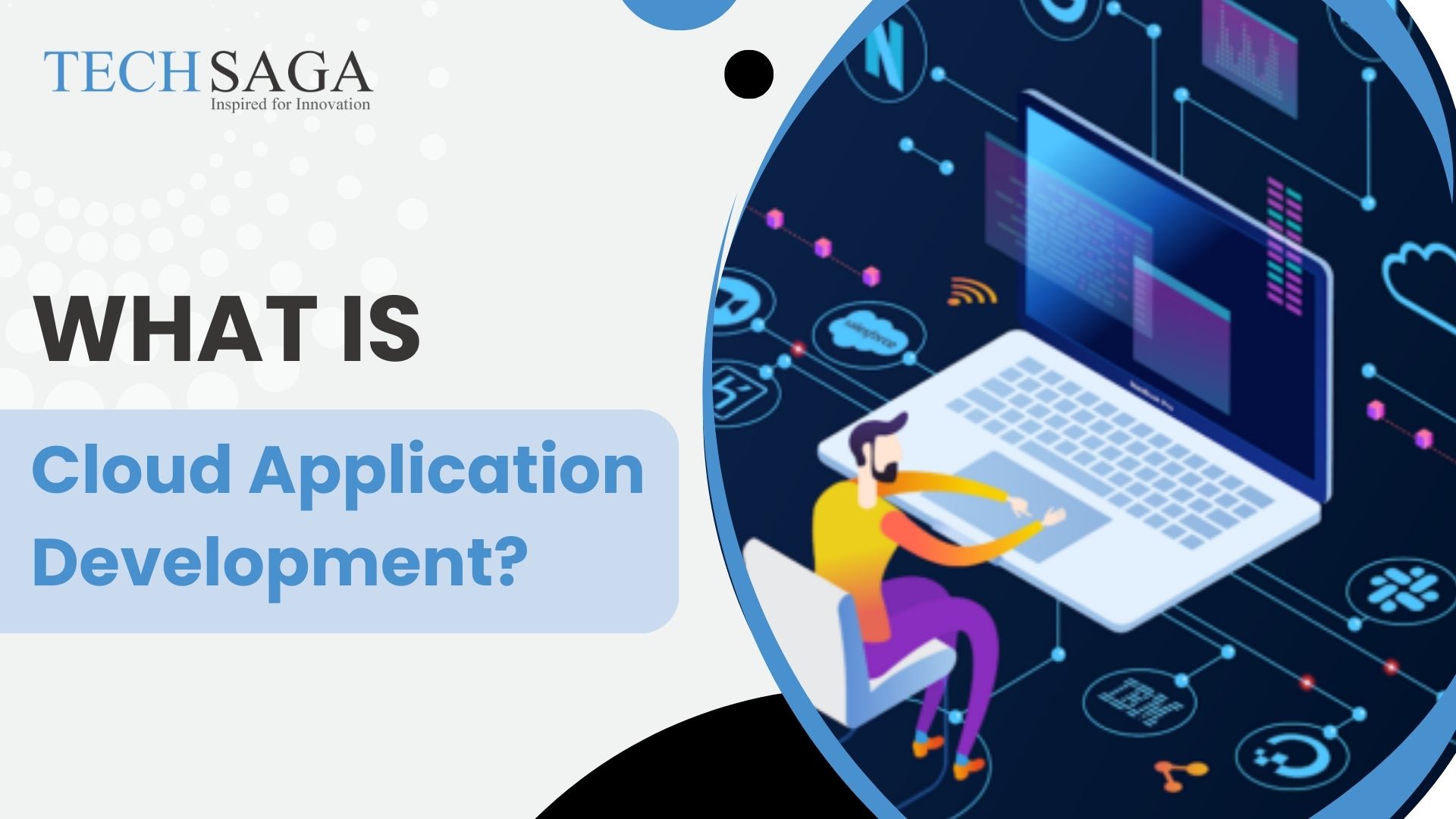Team Techsaga
Gain valuable insights and stay updated with the latest innovations through our engaging blog. Explore trends, technology advancements, and expert opinions to navigate the ever-evolving world of IT.
8 Best Programming Languages for Cloud Engineering in 2024
Cloud engineering is experiencing remarkable growth in 2024, driven by the urgent need for businesses to adapt to ever-evolving technological demands. With organizations migrating to cloud platforms, the emphasis on scalability, flexibility, and enhanced security has never been greater. So, this shift streamlines operations and fosters innovation, leading to an increased demand for skilled cloud engineers who can navigate this complex landscape.
TechSaga is playing a key role in this transformation as a leading cloud applications development company. Our expertise in developing scalable and secure cloud applications allows organizations to stay ahead of the curve, driving innovation and growth in a fast-changing technological environment.
Therefore, if you aim to carve out a successful career in cloud engineering, understanding the right programming languages to master is essential for your professional growth.
So, we are here with the list of the top programming languages for cloud engineering in 2024.
Cloud Engineering:-
Cloud engineering refers to creating, designing, and managing cloud-based systems and applications. As more organizations transition to cloud platforms like AWS, Google Cloud, and Microsoft Azure, engineers who can develop, deploy, and maintain these systems are in high demand. Further, this shift to the cloud requires engineers to be fluent in the right programming languages to ensure efficiency and scalability.
Significance of Choosing the Right Language:-
The programming language you choose as a cloud engineer will directly influence the efficiency, scalability, and maintainability of your applications. Each language has its strengths, and depending on the platform, project, and team, the choice could make or break the project. So, let’s dive into the 8 best programming languages for cloud engineering in 2024.
1. Python: The Swiss Army Knife-
Python continues to reign as a top programming language for cloud engineers, thanks to its simplicity and versatility. Whether you’re building a microservice or deploying machine learning models, Python makes the process smoother. Its vast libraries and frameworks (like Flask and Django) are ideal for developing cloud-native applications.
Why Python for Cloud Engineering?
- Highly readable and easy to learn.
- Supports multiple cloud platforms like AWS Lambda.
- Large-scale libraries for automation, machine learning, and other applications.
2. Java: The Enterprise Favorite-
Java has been the go-to language for enterprise-level cloud solutions for decades. Known for its “write once, run anywhere” principle, Java is highly reliable, scalable, and secure, making it a natural fit for building complex cloud applications. Large-scale cloud services often use Java because of its robust frameworks like Spring and its compatibility with major cloud providers like AWS and Google Cloud.
Why Java for Cloud Engineering?
- Excellent scalability for large-scale applications.
- Rich in frameworks (Spring, Hibernate) perfect for cloud-based services.
- Cross-platform capabilities are ideal for hybrid cloud environments.
3. JavaScript: The Full-Stack Hero-
Due to its versatility, JavaScript is a must-have language for cloud engineers, especially when working on full-stack projects. Whether you’re working on the front-end or back-end, JavaScript can handle it all. With Node.js, engineers can build cloud-based, event-driven applications that are highly efficient.
Why JavaScript for Cloud Engineering?
- Ideal for full-stack development.
- Supports asynchronous programming, perfect for cloud services.
- Vast ecosystem with tools like Node.js and Express for cloud backends.
4. Go (Golang): The Cloud Native-
Go, often referred to as Golang, was designed by Google specifically for cloud-based and distributed systems. It’s highly efficient, with fast compile times and minimal memory overhead, making it a favorite for cloud-native applications. Kubernetes, one of the leading tools for container orchestration, is written in Go.
Why Go for Cloud Engineering?
- Designed for scalability and performance.
- Excellent for microservices and containerized environments.
- Supported by cloud-native tools like Docker and Kubernetes.
5. Ruby: Developer-Friendly Cloud Programming-
Ruby is often praised for its developer-friendliness, and frameworks like Ruby on Rails, allow for rapid development of cloud applications. It has an active community that provides ample resources, making it a great choice for cloud engineering.
Why Ruby for Cloud Engineering?
- Focuses on simplicity and productivity.
- Offers rapid development capabilities.
- Works well with cloud platforms like Heroku and AWS.
6. C#: The Microsoft Ecosystem’s Backbone-
If you’re working within the Microsoft ecosystem, especially with Azure, C# is a must-know language. Built on the .NET framework, C# is highly versatile, whether you’re building cloud-native applications or working on enterprise software. Moreover, its seamless integration with Microsoft Azure makes it a top choice for cloud engineers working in this space.
Why C# for Cloud Engineering?
- Highly compatible with Microsoft Azure.
- Backed by the powerful .NET framework.
- Strong performance and scalability for cloud applications.
7. PHP: The Web Dev Veteran-
Although PHP is primarily associated with web development, it remains a solid choice for cloud engineering, particularly when working on web-based cloud services. Further, with its vast number of libraries and a strong community, PHP is still relevant in cloud projects, particularly for SaaS solutions.
Why PHP for Cloud Engineering?
- Extensive web development frameworks like Laravel.
- Great for developing cloud-based web applications.
- Seamless integration with databases and cloud APIs.
8. Rust: The Secure Performance King-
Rust is gaining a lot of attention for its focus on memory safety and high performance. For cloud engineers who are building systems that require both speed and security, Rust is becoming an increasingly popular option. Additionally, with its focus on safety, Rust ensures that your cloud applications are robust and secure, making it a rising star in the cloud engineering space.
Why Rust for Cloud Engineering?
- High-performance language perfect for cloud systems.
- Memory safety features reduce vulnerabilities.
- Gaining traction in cloud and systems development.
READ ALSO:- STEP-BY-STEP GUIDEANCE ON CLOUD APPLICATION DEVELOPMENT
To Conclude
Choosing the right language for cloud engineering ultimately depends on the specific requirements of your project. If you’re looking for simplicity and versatility, Python and JavaScript are great options. For high-performance applications, consider Rust or Go. Meanwhile, if you’re working with specific cloud providers like Azure or Google Cloud, languages like C# or Java will serve you well.
Therefore, the future of cloud engineering in 2024 is bright, and mastering these programming languages will undoubtedly boost your career prospects.
TechSaga Corporations is a leading IT consulting company specializing in web development, the best cloud app development services in usa, and Workday implementation. Our expertise in delivering scalable and secure solutions helps businesses optimize operations and stay competitive in today’s evolving technological landscape.




